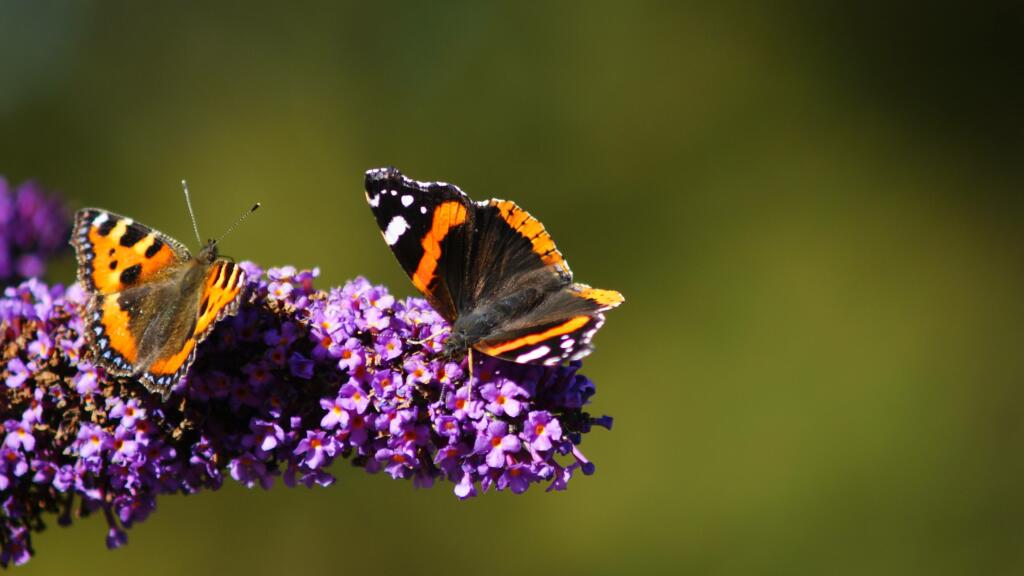
What’s happening to all the butterflies - and how can you help?
Rosanna Spence
People urged not to leave food out in the garden
People living in Milton Keynes have been warned by the city’s council to stop feeding birds and other wildlife altogether if they’re already experiencing rodent issues.
Though Milton Keynes City Council is investing £140,000 to tackle rat problems and other rodents in several estates in the area, it’s asked residents to help by removing any food sources the creatures might find in gardens.
People living in Milton Keynes have been warned by the city’s council to stop feeding birds and other wildlife altogether if they’re already experiencing rodent issues.
Though Milton Keynes City Council is investing £140,000 to tackle rat problems and other rodents in several estates in the area, it’s asked residents to help by removing any food sources the creatures might find in gardens.
 Credit: Shutterstock / Neil Bowman
Credit: Shutterstock / Neil Bowman“We’re asking local people to help us make MK cleaner, greener and safer by being responsible when it comes to feeding birds and wildlife,” Cllr Paul Trendall, Interim Cabinet Member for the Public Realm at Milton Keynes City Council, said in a statement.
“Never leave food out overnight”
“We’re doing a lot of work to tackle pests, but sadly it’s not going to stop rodents breeding if they keep finding a reliable food source in people’s gardens.
“Please follow our guidance: never leave food out overnight, and if rodents are a problem where you live, please stop feeding wildlife entirely to help break the cycle.”
Numbers of many birds are ‘declining seriously’ across the UK, according to the Royal Society for the Protection of Birds (RSPB).
Although farmland birds are faring the worst, there are also falls in some garden visitors, with around 60% of house sparrows lost since the mid–1970s (most notably in the centre of larger cities like London and Edinburgh). Starlings and song thrushes are also declining in number.
 Credit: Shutterstock / Paul Maguire
Credit: Shutterstock / Paul MaguireThough the latest measures taken by Milton Keynes City Council are while active pest control programmes are taking place, it does mean that existing bird populations will also be affected by the reduction in food supply.
Saga Exceptional has asked the RSPB for comment on the situation in Milton Keynes, but at the time of publishing had not received a response.
The RSPB recommends on its website that when feeding the birds, you should only leave out enough loose food (on bird tables or on the ground) for a day, and that it should have been eaten by nightfall, to avoid encouraging rodents.
Head of Pro for Vivara and CJ Wildlife Pro Eric Michels warns that due to the decline in native bird species, it’s important to provide a steady supply of food.
“Particularly as we head into the spring months, birds will be looking for somewhere to roost, building a nest, mating and eventually rearing their young,” he says.
 Credit: Shutterstock / Melanie Hobson
Credit: Shutterstock / Melanie HobsonFor people who want to support the populations of local birds visiting their gardens, yet who want to also avoid attracting unwanted rodents to the feast, there are some steps you can take.
“Bird feeding in gardens will always increase the risk of attracting unwanted wildlife, such as rats and possibly squirrels, but we can help reduce the likelihood,” Natalie Bungay, Technical and Compliance Manager at the British Pest Control Association, told us.
Bungay explains that there are three main things we can do to help deter rodents:
When it comes to choosing the equipment you’ll use to feed birds in your garden, there are rodent-proof designs that can help.
“Weight-sensitive feeders, such as the Leto Smart Feeder means that if something weighing over 70g rests on the perch, the feeding ports will shut and food will become inaccessible,” says Michels.
 Credit: CJ Wildlife
Credit: CJ Wildlife“This is also a great option if you have squirrels that regularly pilfer your bird food supply.”
He notes that there are also several smells and tastes that rodents don’t like, including cayenne pepper, pepper, peppermint, and garlic: “While these smells are unappealing to rodents, birds can’t actually taste them, so sprinkling a little cayenne pepper into your bird feeders, for example, will act as an additional deterrent.”
There are several smells and tastes that rodents don’t like, including cayenne pepper, pepper, peppermint, and garlic
And, as this writer recently experienced, storing any bird or wildlife feed securely is essential to deter rodent visitors, but Michels points out that proper storage also ensures that any food holds its nutritional value for the animals it’s intended for.
Food should be stored in a cool and dry environment – such as a shed or garage – in an air-tight container with a lid.
This selection of wild bird food storage containers and scoops is a useful place to start your search if you need to freshen up how you keep bird food safe and out of rodents’ paws.

Written by Rosanna Spence she/her
Published: Updated:
Rosanna Spence has been a journalist for nearly 10 years, reporting on a huge array of topics – from microwaves to cocktails, sustainable buildings, the Caribbean islands and beyond. She’s interviewed chefs at the helm of Michelin-starred restaurants and chatted to countless CEOs about their businesses, as well as created travel guides for experienced travellers seeking life-changing adventures. Throughout her career, she has created content for Business Traveller, i-escape.com, Pub & Bar, BRITA, Dine Out and many more leading titles and brands.

Rosanna Spence

Rosanna Spence

Rosanna Spence

Rosanna Spence